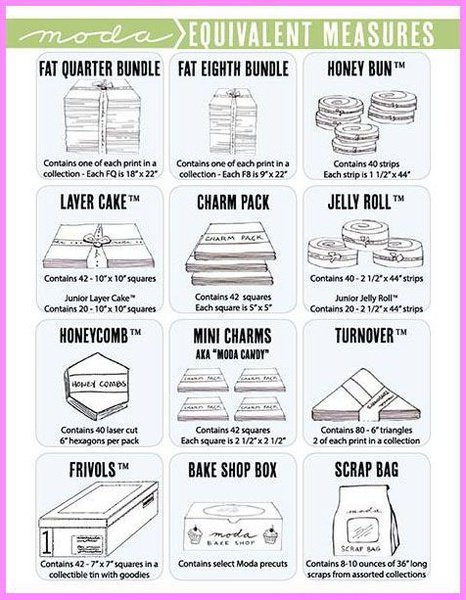
You can solve a puzzle by sorting the pieces according to color. This is one way to locate the correct pieces. It may be easier to sort pieces into general groups when working with a large puzzle. You may also find it useful to work on a section of the puzzle at a time, so that you can complete the section without getting overwhelmed. Always work on the correct side of a puzzle.
It's easier to organize larger puzzles into broader groups.
A good way to organize your puzzle is to color code. The border is a limited number of pieces that give the rest the frame. The border is not the best place to start. The brightest pieces are generally easier to identify. It is also a good idea that puzzles of identical colours are divided into distinct groups.

Try to separate the edges when sorting a puzzle. This isn't as effective for complicated puzzles that are irregularly shaped, but can be useful for regular rectangular puzzles. Don't get too caught up in finding every corner and edge piece, though. Take a quick look to get started. You'll be able to see if there are missing pieces later on in the sorting process.
The easiest way to match pieces is with color
One of the best ways to find pieces that match when assembling a puzzle is by color. Although it is not always possible to match pieces by color, you can make things easier by paying attention to the patterns and colors of the pieces. Some puzzles have pieces with different shapes and colors. This can make it difficult for you to find the right pieces.
Once you know the colors of each piece you can search for matching pieces. This will help you identify matching pieces quickly and also allow you to find pieces that you missed. For curved pieces, the same principle applies. The more similar these pieces look to the other pieces, the easier they are to find. While it may be more difficult to locate a matching piece, you can always try to draw the missing piece on the puzzle so you'll remember it.
To solve a section of a puzzle, work in small pieces
Expert puzzle solvers tend to work with small pieces at a given time. They usually start in the middle of the puzzle, where they can see a pattern, then move onwards. They can continue working on the same section until they finish a section that is stuck. You can save time and feel better when you have completed a small piece of a puzzle. You should also allow yourself enough time to finish a small portion.

It is possible to simplify the process of solving a puzzle by sorting it. By doing this, you will be able to easily build sections. You can even put pieces together that have different main colours. This will allow you to easily identify the pieces later on when you are assembling the puzzle. You can also seperate pieces of the same colour into separate piles. This will help you create a specific section.
FAQ
Why do we have hobbies?
Hobbies are a vital part of our lives as they allow us to unwind, relax, think creatively and exercise. They also give us the opportunity to socialize, network, and have fun. They also provide us with opportunities for learning new skills and developing valuable life-long interests.
Hobbies give us meaning and purpose in life.
These are a great way for you to have some free time, even if there isn't much else.
They are fun!
You probably don’t have enough time to pursue hobbies.
You have many choices. You might consider starting a hobby if you don't already have one.
What are some competitive hobbies?
Running, swimming, cycling and tennis are all competitive sports.
They are usually enjoyed by people who enjoy being active, but also allow for social interaction.
If you have a hobby that involves physical activity, then you'll probably find that there are other people around who share this interest.
This could include joining a club/group that allows you to play sports together regularly.
You might also choose to participate in team games involving playing alongside others.
These include soccer (soccer), rugby, netball and hockey.
There are many types competition.
Some competitions can be used for only recreational purposes.
Others are used to assess competitors' abilities.
Other rewards are available to recognize exceptional performance.
In these cases, winners receive prizes.
Other competitions aim to assess the strength and endurance of competitors.
These are endurance events.
For example, marathon races, triathlons, Ironman Triathlon, etc.
Before competing in these events, athletes train hard.
To prepare their bodies and minds, they will have to adhere to a strict training plan.
They may also need to spend some time away from home during preparation.
It's important not to forget that not all athletes are able to compete in every type event.
What are the most popular hobbies right now?
Popularity isn’t always a positive thing. Popularity is often used to excuse mediocrity. It is a fact that most people don't have enough time to pursue hobbies they enjoy. They're too busy working to make ends met. What do you do with your spare time? You could start a business.
This isn’t easy. There are many obstacles that must be overcome before you can realize your vision.
If you are looking for something more than running a business you might consider starting a hobby.
Hobbies can be more than just creative pursuits. There are many hobbies. There are many hobbies available, including:
-
Gardening
-
Cooking
-
Photography
-
Reading
Statistics
- The intensity of the dialogue partners' bond at the end of the forty-five-minute vulnerability interaction was rated as closer than the closest relationship in the lives of 30 percent of similar students. (time.com)
- Much of this decline reflects the fact that teens are less likely to work today than in the past; among employed teens, the amount of time spent working is not much different now than it was around 2005. (pewresearch.org)
- A new survey by Pew Research Center of teens ages 13 to 17 finds that 36% of girls feel tense or nervous about their day every day; 23% of boys say the same. (pewresearch.org)
- In comparison, men in the “no humor” condition were refused 84.6% of the time and were only accepted 15.4% of the time. (time.com)
- Studies show that just six minutes of reading can reduce stress levels by 60 percent. (oberlo.com)
External Links
How To
How to learn how to play a musical instrument
There are many options for learning how to play the piano. You have the option of going to school, buying a book or taking lessons from someone who plays an instrument. Or, you can watch videos online. These are just a few tips and tricks to help you get started if you're determined to make your own path.
-
Find something that interests you. If you don’t enjoy any of the instruments that you see, you might consider trying another one. If you don’t enjoy playing an instrument it will be hard for you to get into it.
-
Be patient. Learning anything new takes time. It is unrealistic to expect to know everything instantly. Keep practicing each day.
-
Make sure you practice regularly. Do this even when you feel tired. This will ensure that your memory doesn't fade.
-
Find a quiet place to practice. You want to be in a place where you are not disturbed by others. Be sure to not distract others. For example, avoid having loud music playing nearby.
-
Have fun. Music should be enjoyed. Make sure you have fun while practicing. Enjoying yourself will motivate you to continue going at it.
-
Set goals. When you set goals, you know exactly what you have to achieve. Therefore, you will have no excuse for failing.
-
Keep track of how you are doing. Notate all of your achievements and failures. This will help you to improve your performance over time.
-
Take breaks. Sometimes it is enough to just stop and think. Taking breaks can give you the time to think.
-
Ask questions. Ask questions. They may be willing to help.
-
Listening is the best method to learn. Many musicians enjoy listening to their favorite songs and trying to imitate them. This allows them to understand the basic ideas behind the song.
-
Read books. You will learn more from reading books than you can by watching videos or attending classes. Books often contain information you can't find elsewhere.
-
Join a band. You will be able to practice more when you play with others. You will also meet others with similar interests to yours.
-
View tutorials. Tutorials are short videos that give detailed information on a topic. These videos typically focus on one aspect of the instrument. These tutorials will help you to understand the more difficult parts.
-
Explore different learning methods. Some people prefer to learn through lectures. Others prefer to read. Try different methods until you find the one that works for you.
-
Practice makes perfect. You don't become an expert overnight. Instead, you must put in lots of effort before becoming skilled enough to perform well.
-
Learn from other musicians. You can learn faster by listening to other musicians play your favorite songs.